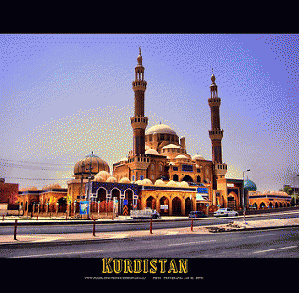In light of recent developments, there has been speculation that Moscow might increase its support for the Kurds in Syria and Iraq and might even lend support to the Kurds in Turkey. To what extent is such a scenario possible and what might the implications be? Any understanding of the Kurds is incomplete without an understanding of their diversity. Although united by common aspirations for basic civil rights and self-determination, the Kurds do not form a single monolithic bloc. Twenty-eight-million strong, they straddle the mountainous frontier territories of Turkey, Iraq, Syria and Iran. They comprise various tribes and speak an array of different dialects and languages, including Kurmanji, Sorani, Pehlewani, Zazaki, and Gorani, although Kurmanji is the most widely spoken. There are also Muslim Kurds (both Sunni and Shia) as well as Yazidi Kurds.

Playing the Kurdish card against TurkeyQuicklink Submitted By Natylie Baldwin 1 comment
|
|
|
Rate It | View Ratings |
Natylie Baldwin is the author of The View from Moscow: Understanding Russia and U.S.-Russia Relations, available at Amazon. Her writing has appeared in Consortium News, RT, OpEd News, The Globe Post, Antiwar.com, The New York Journal of Books, (more...)
,
The views expressed herein are the sole responsibility of the author
and do not necessarily reflect those of this website or its editors.

OpEdNews depends upon can't survive without your help.
If you value this article and the work of OpEdNews, please either Donate or Purchase a premium membership.
STAY IN THE KNOW
If you've enjoyed this, sign up for our daily or weekly newsletter to get lots of great progressive content.
If you've enjoyed this, sign up for our daily or weekly newsletter to get lots of great progressive content.
To View Comments or Join the Conversation:




